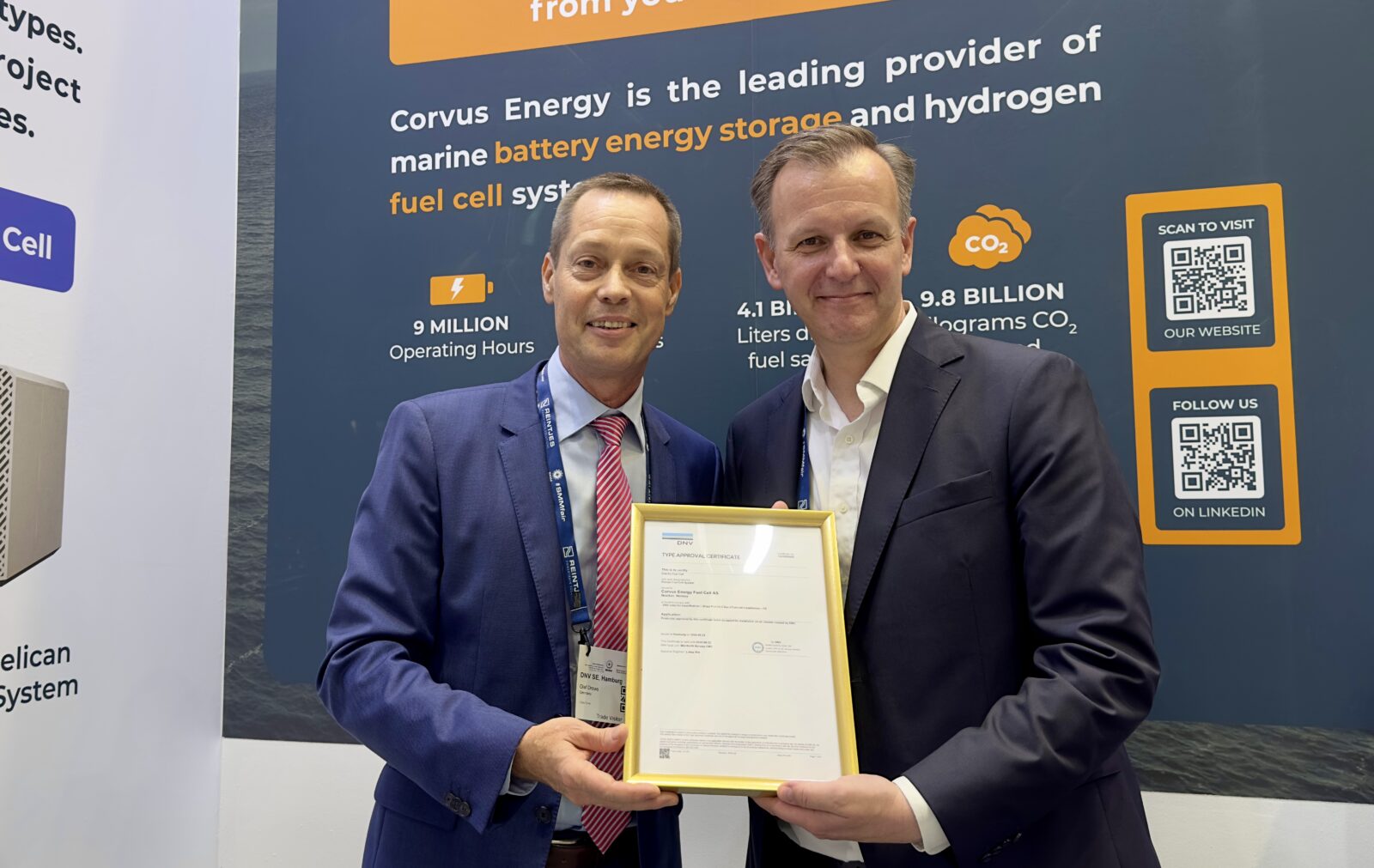Corvus Energy's Corvus Pelican Fuel Cell System Receives DNV Type Approval for Marine Decarbonization
Key Ideas
- Corvus Energy's Corvus Pelican Fuel Cell System receives DNV's type approval, marking a significant milestone in the marine industry for its safety and performance standards.
- The integration of Toyota's fuel cell technology into the marine sector through the Pelican FCS showcases a viable solution for maritime decarbonization efforts.
- The Corvus Pelican FCS, designed to be inherently gas-safe, is set to be installed on MS Skulebas, enabling the vessel to operate for four days on zero emissions, contributing to net zero shipping.
- Corvus' development of the Corvus CoPilot, a real-time advisory system, and collaboration with EU funding for ammonia cracker technology integration demonstrate a commitment to enhancing energy efficiency and sustainability in the maritime industry.
Norway-based energy storage company, Corvus Energy, has achieved a significant milestone with its Corvus Pelican Fuel Cell System (FCS) receiving type approval from DNV, a prominent maritime classification society. The system, developed through the H2NOR project, is deemed the 'safest' fuel cell system in the market due to its inherent gas safety feature.
DNV's approval confirms the system's adherence to stringent performance and safety standards essential for the maritime industry. Utilizing nitrogen for inerting, the Pelican FCS stands out as the first of its kind to employ this technology, ensuring a high safety level.
Corvus Energy's CEO expressed excitement over the system's potential in driving marine decarbonization by offering a quality range extender with scalability and safety. The Pelican FCS, based on Toyota's PEM fuel cell module, illustrates the transferability of Toyota's fuel cell technology to support decarbonization in the maritime sector.
The integration of the Pelican FCS with the MS Skulebas vessel in Norway signifies a significant step towards zero-emission shipping, with operational enhancements expected through real-time advisory systems like Corvus CoPilot. Additionally, Corvus' pursuit of energy efficiency is evident through digital solutions and collaborations for ammonia cracker technology integration.
The article also mentions the APOLO project, where Corvus secured EU funding for ammonia cracker technology integration with the Pelican system, reflecting the company's commitment to sustainable and innovative solutions in the maritime industry.
Topics
Maritime
Energy Storage
Decarbonization
EU Funding
Maritime Industry
Safety Standards
Toyota
Ammonia Cracker
Digital Solutions
Latest News
